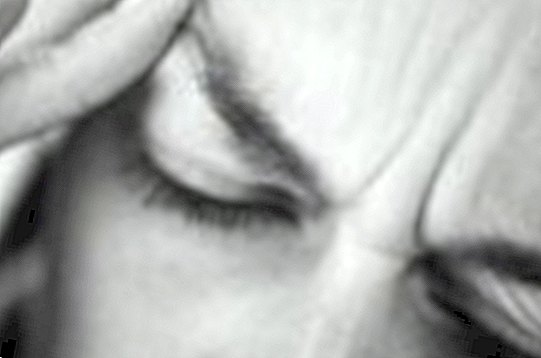Biofeedback: technology instead of tablets

Anyone who suffers from migraine knows that the faster the tablets are taken in the case of a threatening attack, the better. But there is another way: with biofeedback. This still young technical procedure with the complicated name makes patients aware of their normally unconscious bodily functions. For this purpose, body signals (therefore "bio") such as muscle tension, temperature, blood flow or the level of excitation of the brain are derived via electrodes and translated by computer with special software programs in optical or acoustic signals.
Those affected can immediately see on screen or hear how tense they are, for example. Thanks to this feedback (therefore "feedback") they then learn to mentally control the respective disabling body function, that is, to relax. That this works for high blood pressure, back pain, sleep disorders, asthma and anxiety disorders, studies have shown. Now the German Migraine and Headache Society has included this alternative method in its new guideline for migraine therapy. Dr. Anke Pielsticker, Psychological Psychotherapist from Munich, who has been working for a long time with migraine patients, has already had good experiences with biofeedback.
Experts in biofeedback
Qualified biofeedback therapists arranged by the German Society for Biofeedback e. V. at www.dgbfb.de. In case of migraine please ask for Neurofeedback. A list of headache experts and lifestyle tips can be found at the German Migraine and Headache Society at www.dmkg.de, Psychologische Schmerztherapeuten of the German Society for Psychological Pain Management and Research at www.dgpsf.de. A CD with a relaxation training for headache prophylaxis have the Neustädter pain therapist Dr. med. Johanna Michel and the psychologist Jutta Schultis produces (Valle Venia, about 15 euros, in specialized shops).
Interview: Brain training reduces stress
ChroniquesDuVasteMonde WOMAN: How does biofeedback help with migraine?
DR. ANKE PIELSTICK: Recent theories assume that the processing of stimuli is disturbed in migraine and thus the brain activity is constantly increased. With biofeedback you can specifically learn to effectively downsize them through mental training. This can prevent seizures.
ChroniquesDuVasteMonde WOMAN: How is this session going?
DR. ANKE PIELSTICK: The patient can observe her brainwaves on a screen. So she sees if she is upset or relaxed. When relaxing, she hears music or a pleasant sound. In this way, your brain is rewarded and thus positively conditioned. She also sees her tension and can slow down her brain activity through targeted training. It can better protect against migraine triggers such as stress and overstimulation.
ChroniquesDuVasteMonde WOMAN: For whom is this method suitable?
DR. ANKE PIELSTICK: For all migraine sufferers who are not so well aware of tension in their body or have difficulty learning a relaxation procedure. The biofeedback shows them clearly how important stress reduction is, and above all, how they reach it. Ten sessions are usually enough to develop an individual method. Then you can relax at any time without computer control.
ChroniquesDuVasteMonde WOMAN: Where is biofeedback used?
DR. ANKE PIELSTICK: Mainly in clinics with a focus on pain therapy and in the context of spa procedures. Ambulatory offers are still rare. If the biofeedback is embedded in a behavioral therapy, the health insurance companies bear the costs.
ChroniquesDuVasteMonde WOMAN: How can sufferers still prevent migraine attacks?
DR. ANKE PIELSTICK: With a balanced lifestyle, good stress management in everyday life, twice per week endurance sports and daily 25 to 30 minutes of relaxation exercises such as progressive muscle relaxation or autogenic training they achieve a lot. Also important: learn a five-minute relaxation for particularly stressful moments to counteract impending attacks. Those who handle stress poorly can learn this in a short-term behavioral or special pain psychotherapy.










